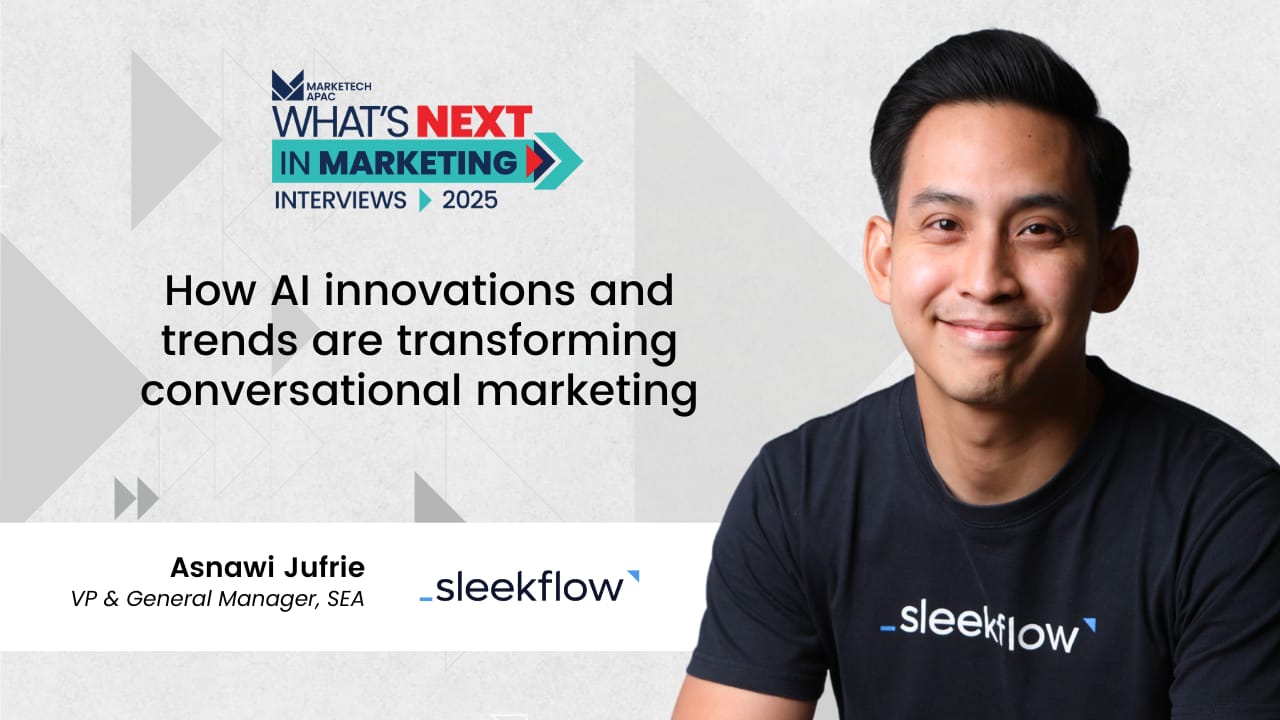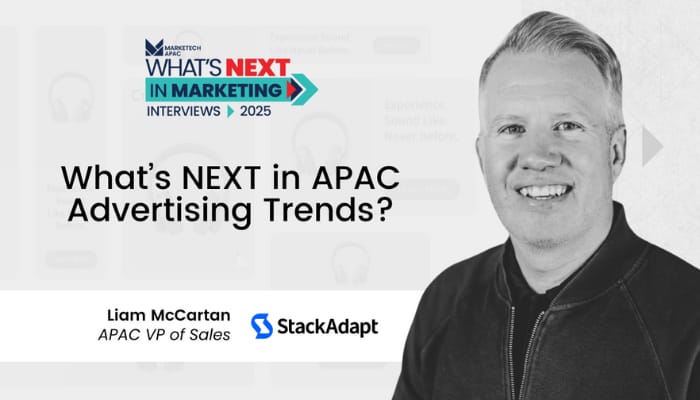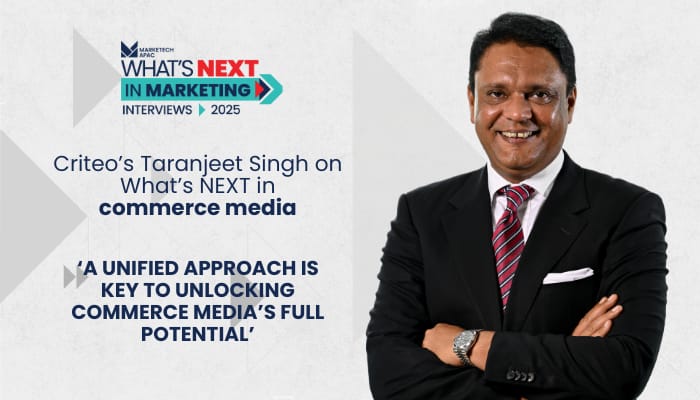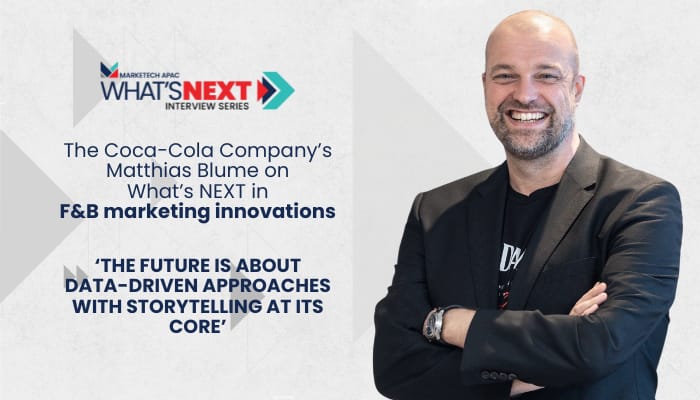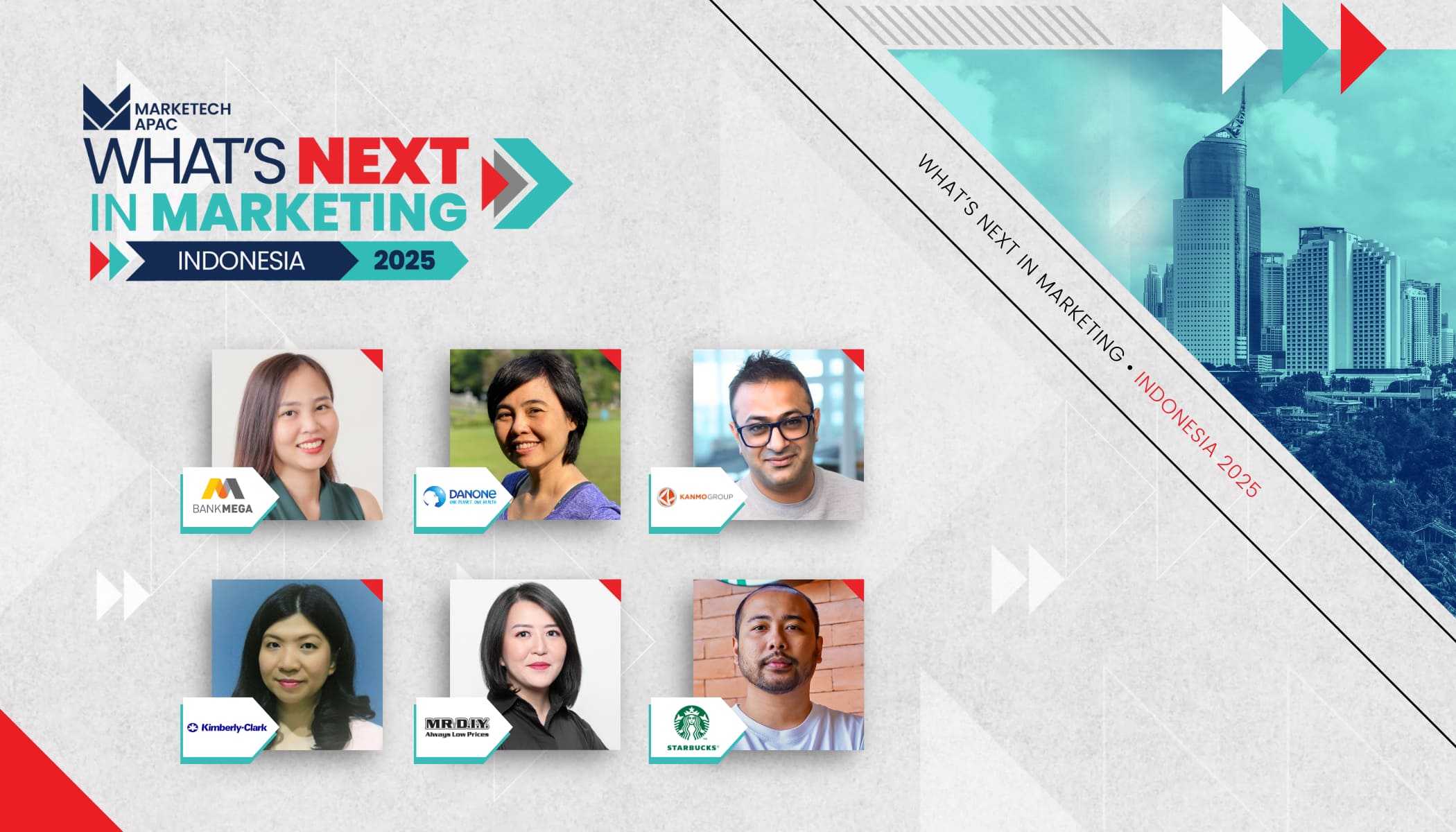AI-powered customer engagement strategies are transforming the way businesses interact with their audiences. By harnessing the power of artificial intelligence, companies can deliver hyper-personalised experiences, anticipate customer needs, and provide real-time support. This not only streamlines interactions but also fosters deeper connections and trust.
With AI-driven insights, businesses can proactively address concerns, optimise marketing efforts, and enhance overall customer satisfaction. In an era where customer expectations constantly evolve, AI is no longer optional—it’s necessary to stay relevant and build lasting relationships.
To better understand what lies ahead for AI-driven customer engagement strategies, we sat down with Asnawi Jufrie, vice president & general manager of Southeast Asia at SleekFlow for our latest What’s NEXT in Marketing interview to better understand the importance of customised AI-powered customer engagement strategies, ethical considerations when implementing it, and the synergy between AI and human expertise.
How conversational AI is transforming customer interactions
Asnawi highlights that conversational AI is more common than people think–and that we interact with it daily. A recent Southeast Asian survey by SleekFlow revealed that 86% of respondents are familiar with AI-powered customer service, even if they don’t recognise it as ‘conversational AI.’.
This further highlights his point on how AI is making customer interactions smoother, faster, and more engaging by bridging the gap between brands and users, enhancing customer service by automating common inquiries while keeping interactions natural, and improving customer care by providing real-time assistance with minimal wait times.
“Conversational AI is currently helping us form closer ties between brands and their users while actually reshaping the customer care segment,” Asnawi said.
He added, “With messages and with the tones of your messages, it’s a lot easier—by having different guardrails in AI—to actually determine what kind of intent or what kind of emotion this person is feeling.”
AI agents versus traditional automation
In the interview, Asnawi explained the key differences between AI agents and traditional automation tools, emphasising how AI-powered solutions are more adaptive, intelligent, and personalised compared to basic rule-based bots. Meanwhile, traditional automation tools function using pre-programmed rules and can only handle structured, predictable queries.
AI agents, on the other hand, use natural language processing (NLP) and natural language understanding (NLU) to interpret context, intent, and sentiment. Unlike traditional bots, AI agents can handle unstructured human language, including slang, abbreviations, and variations in phrasing. They can learn from past interactions and improve over time, making conversations feel more natural and less robotic.
“Many times, people say, ‘I don’t want to speak with a chatbot.’ And I completely understand. Traditional bots follow structured rules, and that makes them feel robotic. The difference between AI agents and traditional bots is that AI agents understand unstructured, real-world conversations, while bots only follow a script,” he explained.
He also highlighted how AI agents are evolving beyond just answering questions; it can now analyse emotions and adjust interactions in real-time.
“Real-time sentiment analysis is a game-changer. AI agents can now detect frustration, urgency, or satisfaction in a conversation—and respond accordingly,” he added.
A good example of the key strengths of AI agents nowadays is how they are trained to understand regional dialects and cultural nuances, such as Singlish (Singaporean English) or Taglish (Tagalog-English in the Philippines).
While data notes that AI may eventually replace human intelligence for customer service in the future, Asnawi said that AI will only serve as an enhancement for said service.
“I believe AI will never fully replace human agents, but it will enhance their ability to focus on what really matters—providing genuine human connection where it’s needed,” he stated.
Key considerations for implementing AI agents
For Asnawi, successfully integrating AI agents into a business requires careful planning, strategic deployment, and a focus on privacy, ethics, and optimisation. One of the most important factors is data quality—since AI relies on past interactions to improve, businesses must ensure that their datasets are accurate, unbiased, and representative of their customer base.
Another critical consideration is privacy and security. AI systems often process large amounts of customer data, making them potential targets for data breaches. Companies need to implement strong security measures, including data encryption, secure authentication, and regular audits, to comply with regulations such as GDPR (Europe), PDPA (Singapore/Malaysia), and CCPA (California).
“Privacy and data security aren’t optional. AI collects massive amounts of information, and if mishandled, it can lead to significant legal and financial consequences,” he stated.
Moreover, he also noted that companies must customise their AI agents to fit their specific industry and operational needs. In his observation, many businesses make the mistake of copying AI strategies from competitors without considering how AI can best serve their unique workflow. AI deployment should be based on a thorough evaluation of customer touchpoints, identifying areas where automation adds value rather than creating friction.
“One of the biggest mistakes companies make is assuming that AI is a ‘one-size-fits-all’ solution. Every industry has unique needs—AI must be tailored to those needs,” he said.
He added, “AI is a tool, not a replacement. The best customer experiences come from AI working alongside human agents, not instead of them.”
By using Sleekflow’s AI-powered automation and omnichannel messaging services, Asnawi highlights how they aim to help businesses to focus on personalised AI interactions that bridge the gap between brands and customers.
To view the full discussion, watch the video interview here:



